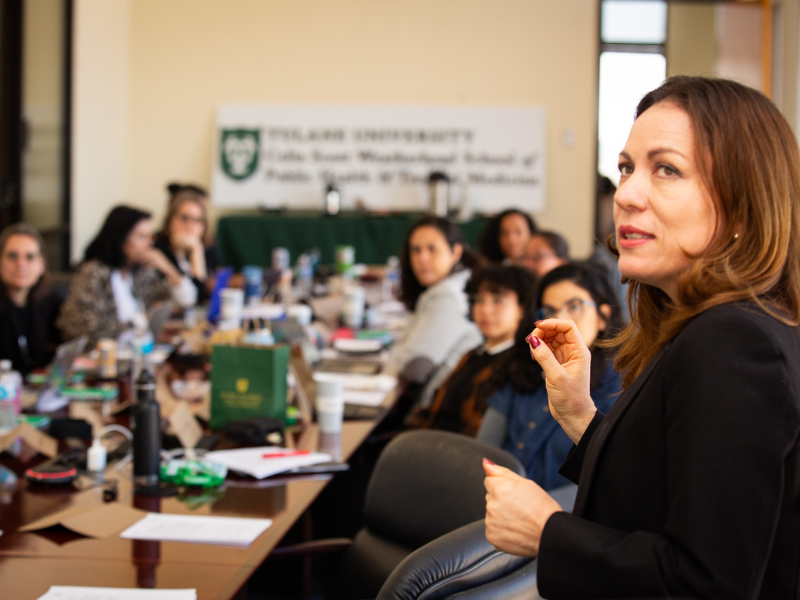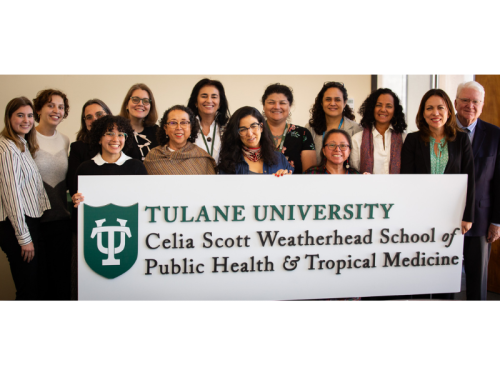CHELA becomes a center to promote health equity in Latin American nations
Original story from Celia Scott Weatherhead School of Public Health & Tropical Medicine News, written by David Gladow dgladow@tulane.edu and published on November 1, 2024.

The Center for Health Equity in Latin America (CHELA) reached a significant milestone recently, as the organization transitioned from a collaborative group created in 2015 to a center during its first biennial meeting on Oct. 17-18.
With support from the Celia Scott Weatherhead School of Public Health and Tropical Medicine and the Roger Thayer Stone Center for Latin American Studies at Tulane, the group transitioned to the new name – more befitting the scope of its mission – as part of an agenda that includes establishing a Panamerican Diploma among institutions from nine countries as well as crafting a statement -- Racism and Equity in Latin American Public Health: A Call to Action -- to work toward health equity across Latin America.
By leveraging health equity research as a catalyst for national and international policy decisions, the Center for Health Equity in Latin America strives to document and mitigate regional inequities in health outcomes and access to quality health care, and thus impact the lives of underserved populations throughout Latin America and the Caribbean.
“The discussions about the issues on racism in healthcare on Thursday were vibrant, culminating in the powerful statement, signaling our unified commitment to driving meaningful change across the region.”
Dr. Arachu Castro
“We had participants from Brazil, Costa Rica, Cuba, the Dominican Republic, Guatemala, Mexico, and Peru,” Arachu Castro, director of CHELA, said. “The discussions about the issues on racism in healthcare on Thursday were vibrant, culminating in the powerful statement, signaling our unified commitment to driving meaningful change across the region.”
CHELA engages Tulane University faculty, students, and global partners to lead innovative research initiatives that examine health equity in Latin America and the Caribbean, providing visibility for the region’s under-recognized health inequities, and works to inform policies to address the needs of the region’s underserved populations.
The Latin American region is known for its vast ethnic diversity and significant inequalities in health outcomes that often correlate with social and ethnic backgrounds. Structural and systemic racism, which permeates all social contexts in the region, manifests and reproduces itself extensively in health facilities, resulting in unsafe and disrespectful healthcare delivery, or even outright neglect. Such discrimination, compounded by the weathering effect of structural and systemic racism, leads to inequitable health outcomes among racialized population groups, such as indigenous, Afro-descendant, and migrant communities, compared to other population groups.
“In response to this pressing public health problem, the meeting achieved the objectives of presenting and discussing evidence about the racist practices in healthcare delivery and its context in Latin America,” Castro said. “We succeeded at examining how schools and public health programs can teach and conduct research to prevent racist practices with demonstrable results and took steps toward creating a Pan American Diploma on the Prevention of Racism in Health Care.”
The biennial meeting organizing committee consisted of Dr. Eva Silvestre, Dr. Martha Silva, and Dr. Arachu Castro of the Celia Scott Weatherhead School of Public Health and Tropical Medicine at Tulane University.



